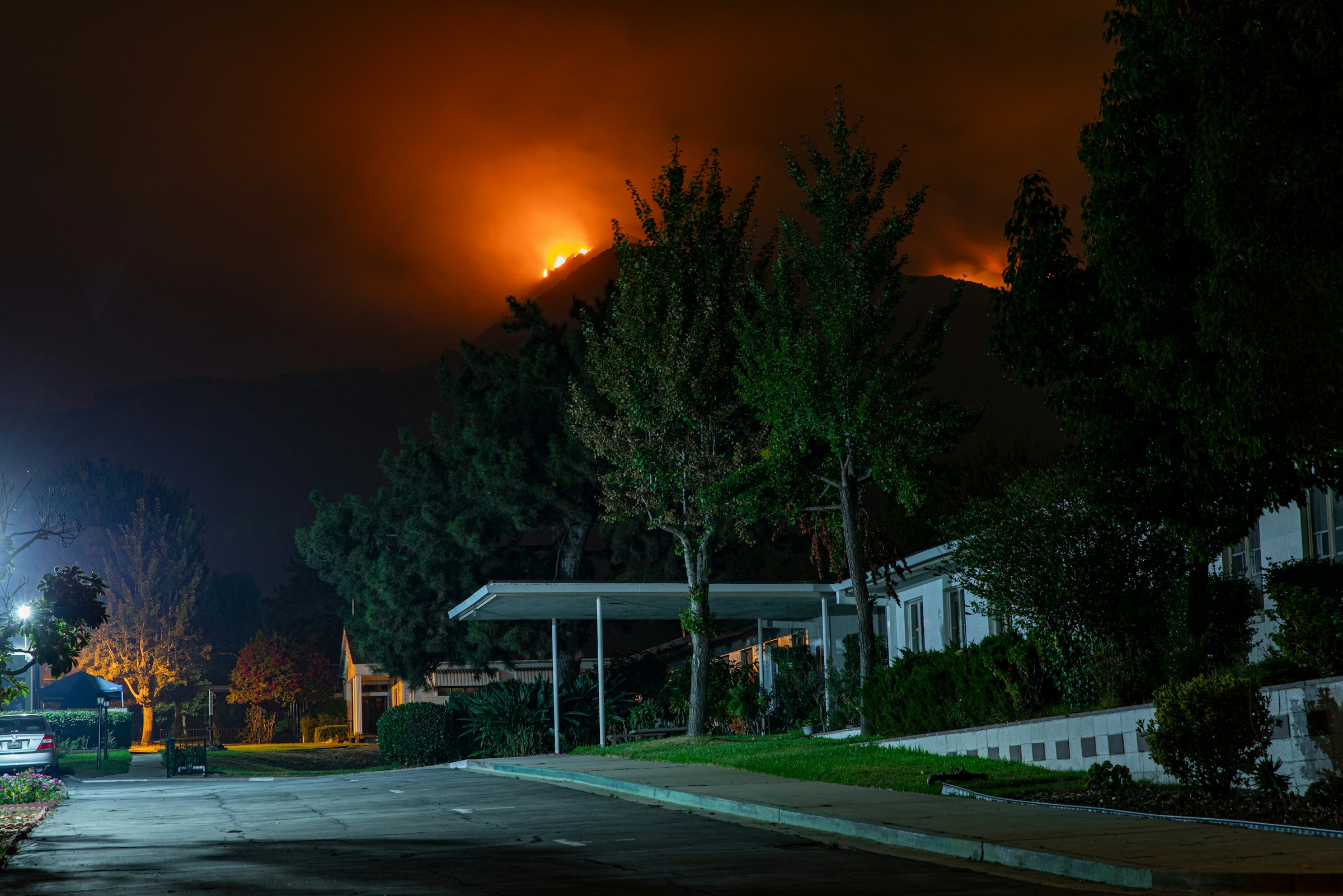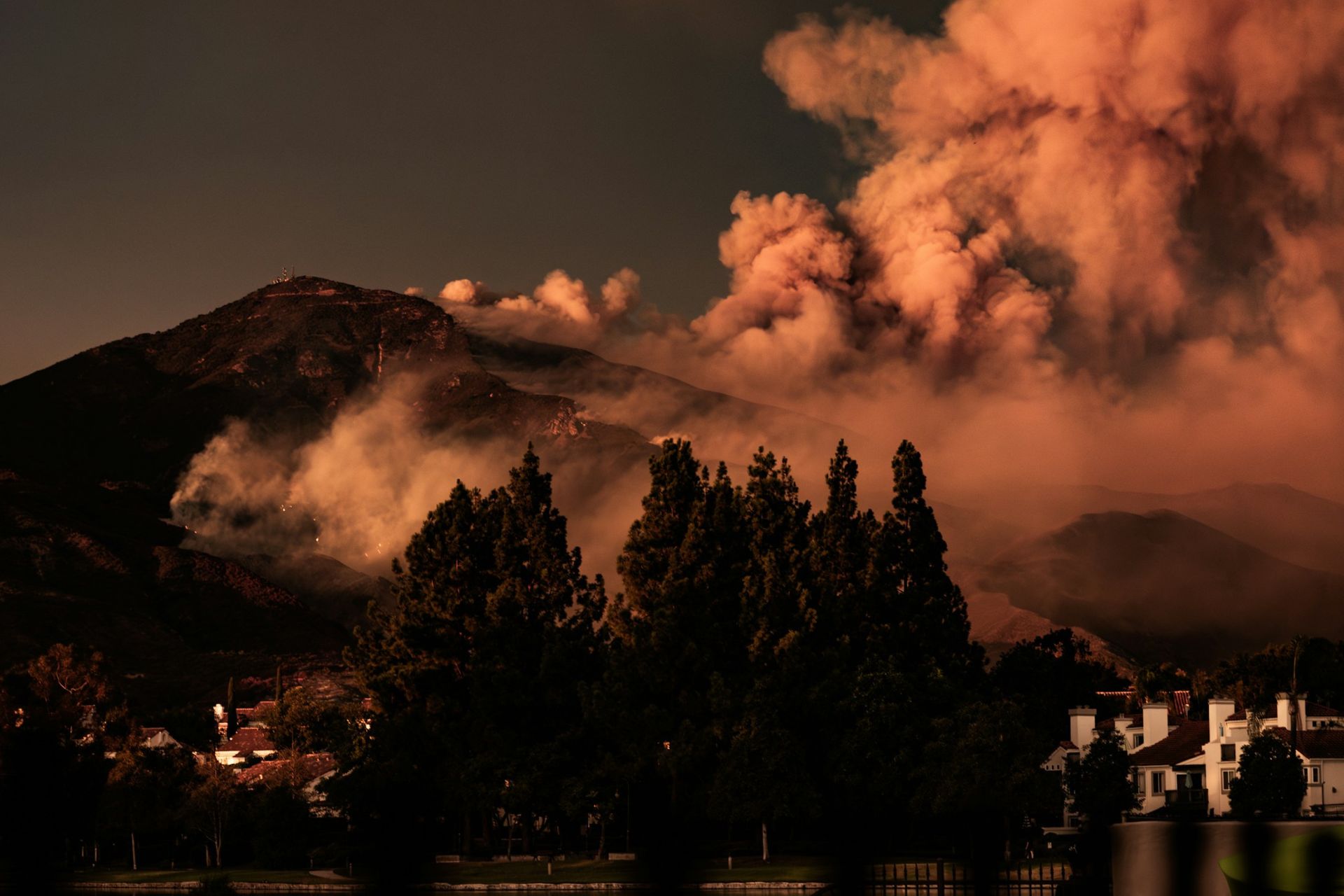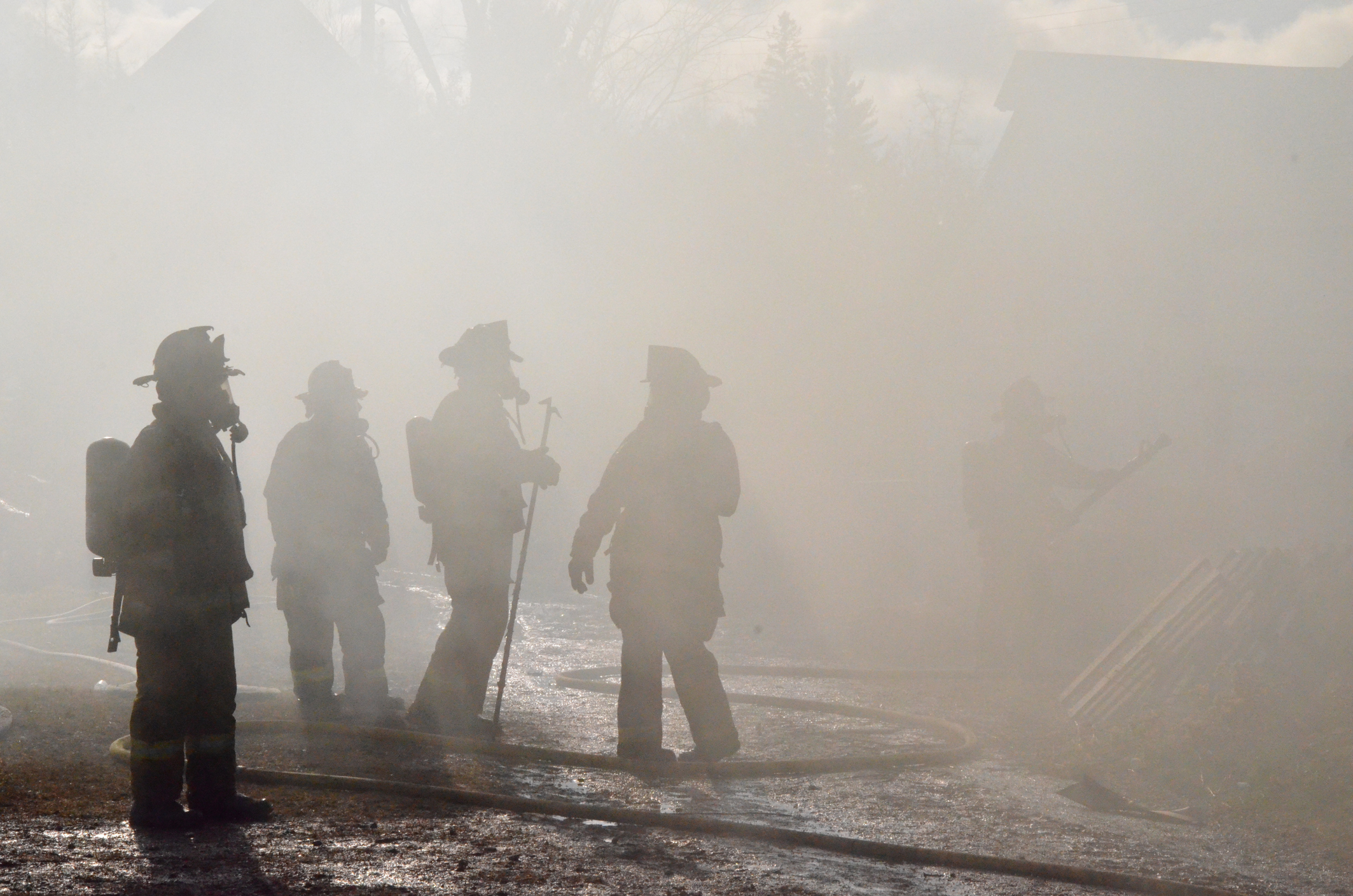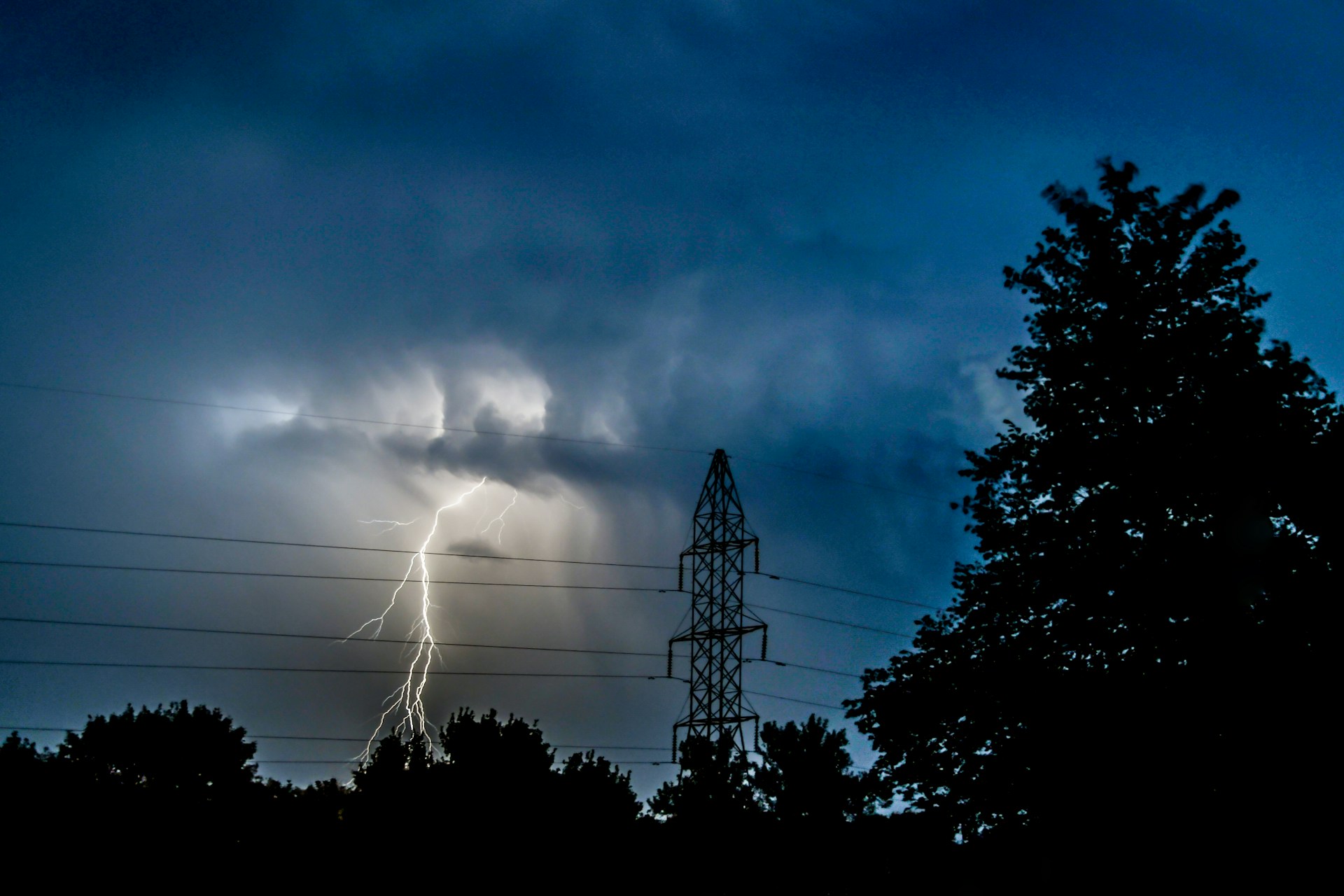
As our attorneys work on Eaton Fire lawsuits with survivors, we’ve thought a lot about what people can do when the next fire happens. Many communities throughout Northern and Southern California have been forced to evacuate because of wildfires in recent years, and it’s helpful to know what to do ahead of time so you’re ready.
Below, the team at Danko Meredith has provided some advice on how to prepare for a wildfire if you’re in an at-risk area. We’ve also offered some tips in case you need to evacuate during a wildfire, and what you should consider if your home or business is damaged in a wildfire.
If you’ve been affected by a California wildfire caused by utility companies, our attorneys are here to help. For a free consultation with our wildfire lawyers, contact our law firm today. You can also reach our Redwood City law office by phone at (650) 453-3600.
Wildfire Preparedness Tips
If you live in an area that is at risk for wildfires, it’s best to be prepared. Before fire season or the first warning of a possible wildfire, there are several things that you can do.
Make a Wildfire Go Kit/Go Bag
A go kit or go bag contains roughly three days of supplies that you can easily take with you in case of evacuation. Each person’s go bag should contain:
- Three days of non-perishable food
- Three gallons of water
- Any necessary medication
- An extra pair of glasses or contact lenses
- A change of clothes
- An extra set of house and car keys
- Credit cards and cash
- Important documents (ID, passport, Social Security card, etc.)
- A battery-powered flashlight
- Emergency battery pack for your cellphone
Make a Wildfire Stay-at-Home Kit
If there’s a wildfire in your area, road closures, loss of power, and poor air quality may necessitate that you stay indoors. In these situations, have a stay-at-home kit ready for your household. This should generally include two weeks’ worth of food, water, and other necessities in case you are forced to remain inside.
Get an Air Filter and N95 Face Masks
It can take time for the air quality to improve during a major wildfire. To protect yourself and your family, consider getting an air purifier to improve air quality in certain areas of your home. Having N95 respirators can also help protect you from serious respiratory health problems.
Gather Medications and Prescriptions
Just to be on the safe side, make sure that you have a one-month supply of prescription medication or any necessary medications available at all times. This supply of medication can be thrown in your go bag if you need to evacuate.
Make Back-Ups of Important Records and Documents
If you have any personal, medical, or financial records, make backup copies that you can access. While digital copies are always a good idea, you should also make hard copies just in case there is no cell service or internet.
Get a Battery-Powered Radio
On the note of cell service and wifi, it’s a good idea to have a portable battery-powered radio that you can use to monitor news reports and any evacuation updates. Bring this radio with you as part of your go bag.

What to Do When a Wildfire Is Near Your Area
When it’s fire season in California, your home could be in a hazard zone. You may smell smoke, notice a change in the color of the sky, and see ash raining down on the neighborhood. When there’s a wildfire approaching your community, you need to start thinking proactively about evacuation.
Here are some tips when there’s an imminent wildfire risk where you live.
Coordinate Plans with Members of Your Household
Speak with members of your household about escape routes and what to do if evacuation is necessary. Agree on a meeting point in a safe zone or evacuation zone where everyone can meet in case you get separated; if possible, try to have a friend or family member outside of the area act as a point of contact for everyone, just in case it’s difficult to get to the meeting point.
Pack and Prepare Before You Need to Evacuate
When a wildfire comes, you may only have seconds to leave your home. Being ready to go at a moment’s notice is crucial. Gather your go kit and the most important items early, and be sure everything is ready to grab if you get evacuation orders.
Park Your Vehicle in the Driveway or at the Curb
The power might fail during a wildfire, which could trap your vehicle in the garage. When there’s a wildfire in the area, be sure to back your car into the driveway or park on the street. This could save you minutes of manually opening your garage door.
Do a Video Walkthrough of Your Home or Business
Insurance companies often need an inventory of what was lost on your property during a wildfire. Doing a quick walkthrough of the premises on video can capture proof of your belongings. This evidence could mean tens or hundreds of thousands more dollars from your insurance company if your home or business is destroyed in a wildfire.
Gather Pets and Animals Early
Pets and animals get frightened as fire approaches. They will often hide under the bed or in other parts of the home that may be difficult to access. Even if it seems mean to keep your cat or dog in a travel kennel or on a leash longer than necessary, it is better to be prepared than to leave them behind during an evacuation.
Monitor the Progress of the Fire
Stay tuned to local news reports to keep tabs on the progress of the wildfire. You can also check the California Department of Forestry and Fire Protection (CAL FIRE) for information on active wildfires in your area. Their updated maps will provide the latest evacuation zone information.

Wildfire Evacuation Tips
As you’re listening to the radio or keeping tabs on your phone for alerts, you may get an urgent evacuation notice. When you are instructed to evacuate your home by California fire officials, follow these tips.
Evacuate When You Are Instructed
Once you get the notice to evacuate, get out as soon as possible. When firefighters arrive at the scene, they will rescue people who stayed behind rather than save property. It may be painful to leave your home, but doing so may be the best way to protect your property.
Do NOT Fight the Fire Yourself
Never try to fight a wildfire yourself. You simply do not have the equipment, expertise, or resources to extinguish a fire that large. In addition, electricity and municipal water supplies will often fail as a wildfire draws near. Leave this dangerous task to the professionals.
Grab Things That Cannot Be Replaced
Your go bag should have essentials. If you want to take anything else, focus on the items that cannot be replaced. You can get new clothes from donations or a store in the coming days, but you cannot replace photo albums, family heirlooms, or other items with deep sentimental value.
Drive Cautiously and with Your Headlights On
It can be hard to see your vehicle when there’s heavy smoke. Use your headlights to remain visible, and be sure to drive with caution in case other people evacuating are panicked behind the wheel. Stick to recommended roads for evacuation.
Tips When Returning to Your Home or Business After a Wildfire
After the wildfire has been extinguished and you can check on your home or business, there are a few safety tips to consider. Even if your property doesn’t seem damaged from the outside, always proceed with caution.
Return When Fire Officials Give Clearance
Only return to the area when officials have deemed it safe. Wind and weather conditions can change quickly, and fires that seem under control may require additional time to fully extinguish.
Return During Daylight Hours
For your safety, only check on the property during daylight hours. As eager as you may be to return home or check on your business, it’s easier to spot potential hazards during the day than at night.
Carefully Inspect the Property and the Surroundings
Walk the perimeter of your property before you enter it. Check for any embers or small fires around the property. If you notice a rotten egg smell or other signs of a gas leak, notify local authorities for help. If it is safe to go inside, check the property with a flashlight and proceed with caution.
Discard Food Exposed to Heat, Smoke, or Other Elements
Exposed food items could be affected by fire, smoke, and contaminated water. Throw any food away to avoid potential illness. You should also discard any clothes, pillows, plush toys, or other items that have been severely damaged by fire or smoke.
Avoid Drinking Tap Water Until Official Clearance
Municipal water supplies could be affected by smoke, ash, and other contaminants from wildfires. Do not drink tap water or cook with tap water until local officials tell you it’s safe to do so.
Protect Yourself While Cleaning the Property
While cleaning your property, wear long sleeves, pants, protective eyewear, and an N95 mask. This will protect your skin and eyes from irritants and prevent respiratory problems from inhaling smoke, soot, building materials, chemicals, and stray particulate matter.
When to Speak with a Wildfire Attorney
You should reach out to California wildfire lawyers if your property has been seriously damaged, you suffered an injury during the wildfire, or you’ve run into issues with your insurance company while filing a claim.
As more information becomes available about the cause or causes of a wildfire, you’ll get a better picture of how much your claim could be worth and if you can seek damages against a liable party.

Potential Causes of Wildfires
Wildfires have numerous causes. Some of the most common causes of wildfires include:
- Lightning Strikes: Lightning strikes have caused some of the biggest wildfires in recent years, such as the August Complex fires, the SCU Lightning Complex fires, and the LNU Lightning Complex fires of 2020. Dry thunderstorms are particularly dangerous in California; these are thunderstorms that produce a lot of lightning but very little rain.
- Poorly Extinguished Fires: When a campfire is not properly extinguished or a brushfire isn’t completely put out, embers can continue to smolder and eventually re-ignite. The Oakland Hills Firestorm of 1991 was caused by a grassfire that wasn’t properly extinguished.
- Fireworks: When fireworks are set off near dry brush or the woods, the sparks could ignite a wildfire. This is a particular hazard around the Fourth of July and New Year’s Eve.
- Arson: Some fires are caused by people intentionally. According to recent reports, the Palisades Fire in Los Angeles was caused by arson. To date, the Palisades Fire is the third most destructive wildfire in California history.
- Negligence by Companies: Factories, utility companies, and other businesses could spark wildfires through their operations. The 2022 Mill Fire was reportedly caused by mechanical failure at a veneer mill.
Environmental Factors That Make Wildfires More Likely
Certain conditions in California make wildfires more likely and also more destructive. It’s important that we highlight these factors:
- Extended Drought Conditions: California has a pattern of brief heavy rain followed by extended dry periods and heatwaves. When the vegetation that flourished during the rainy months dries out, it creates ample amounts of fuel for a major wildfire.
- Strong Regional Winds: California has strong winds that can make dry conditions worse. These winds can also spread embers during a fire. Many of us are familiar with the wildfire dangers caused by the Santa Ana winds in Southern California and the Diablo winds in Northern California.
- Difficult or Remote Terrain: Aerial firefighting is crucial for suppressing and containing wildfires throughout the state, but it’s not enough. Ground crews are required to create fire breaks, check for smoldering brush, and fully extinguish fires. Many wildfires start in or spread to mountains, remote land, and places that are difficult for large crews to access.
- The Wildland-Urban Interface (WUI): The WUI is the place where forests and grassland meet with homes and businesses. KPIX/CBS News reported that 1.2 million homes in the Bay Area alone are in the WUI. When fires break out and spread like they did in L.A. earlier this year, they can be extremely destructive to nearby structures.
- Climate Change: The realities of climate change cannot be ignored. There will be greater extremes in weather in California, which means the potential for a more dangerous fire season.
Utility Wildfires: A Major Danger in California
We mentioned that negligence from companies is a major factor in many wildfires, and that’s especially true when it comes to utility companies. Utility fires are a subset of wildfires that are caused by negligence on the part of utility companies.
Utilities like Pacific Gas & Electric (PG&E) and Southern California Edison (SCE) have both played roles in major wildfires in California. In fact, SoCal Edison has a compensation program to help minimize payouts for their role in the Eaton Fire.
Common Causes of Utility Wildfires
When utility fires happen, they usually involve one of these three causes:
- Electrical Equipment Is in Disrepair: When a utility company does not maintain its transmission towers, power lines, or other equipment, there’s a much higher risk of a utility wildfire. These companies feel it’s more cost-effective to let equipment fail rather than fix it. A run-to-failure mentality like this endangers tens of millions of Californians.
- Trees and Vegetation Are Too Close to Power Lines: Many transmission towers and power lines are located in forested areas with a lot of dry vegetation. Utilities need to keep trees and tree limbs away from power lines. If a tree hits a tower or a power line, it can spark a fire that can spread quickly.
- Power Is Not Cut Off in Time During Heavy Winds: Heavy winds can cause power lines to swing and potentially make contact with other lines or nearby tree limbs. Power companies can shut off power as a precautionary measure, but sometimes they fail to do so, resulting in massive wildfires.

Why You Need Danko Meredith After a Utility Wildfire
If your home or business was damaged in a utility fire or you suffered serious injuries due to burns or smoke inhalation, you need our Bay Area wildfire attorneys on your side. Our attorneys have more than 120 years of combined legal experience. We’re ready to take on utilities and major corporations that put profits before people and public safety.
Danko Meredith Knows How to Fight Utility Companies
Our law firm has a long history of holding utility companies accountable. In addition to helping survivors of the Eaton Fire, our law firm has worked on high-profile utility fire cases like the Dixie Fire, the Camp Fire, and the Butte Fire. We also represented victims of the 2010 PG&E pipeline explosion in San Bruno, and we are currently taking on Hawaiian Electric for their role in the 2023 Maui wildfires affecting Lahaina.
We Have a Strong History of Success
Danko Mereidth has prevailed for clients in many difficult, high-value cases. How is that possible? Well, our law firm has the experience and resources to negotiate from a place of strength and go all the way to trial if needed. Our team also has access to some of the most trusted expert witnesses in the country, which helps us construct compelling cases with great attention to detail. Look through our notable verdicts and settlements to get a sense of our meticulous approach to investigation and litigation.
You Don’t Pay Our Wildfire Attorneys Unless We Win
Wildfire victims have a lot to worry about, and we’re here to offer support and peace of mind for regular Californians during a difficult situation. Our law firm provides free consultations. In addition, clients don’t pay our attorneys anything unless we can win for them. At Danko Meredith, our focus is on securing you a settlement or obtaining damages so you can move forward.
Contact Our Wildfire Attorneys for a Free Consultation
We hope these tips serve you well during a wildfire. The team at Danko Meredith is here to help if you’ve been affected by a utility fire. We’ll take PG&E and SoCal Edison to court, and we have the experience and resources to win. For a free consultation with our California wildfire attorneys, contact Danko Meredith today. You can also reach our Bay Area law office by calling (650) 453-3600.
